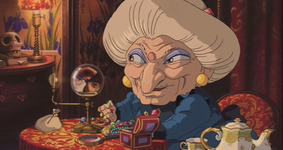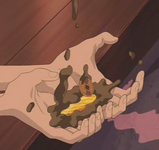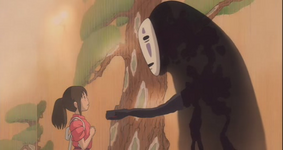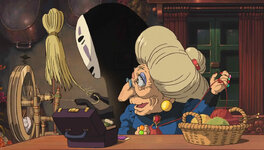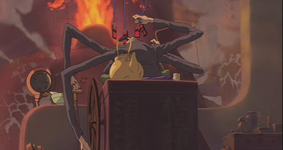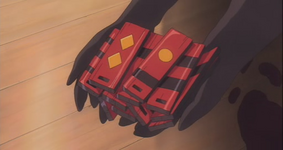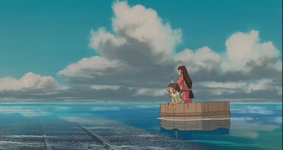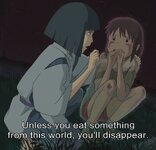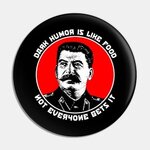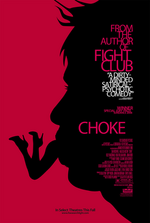The Outsiders has an all-star cast, one of the things that make this film a cult classic. Matt Dillon is perfect for this role, and his flirtation with Cherry at the drive-in theater is unforgettable. I also love seeing Tom Cruise in his younger days, and although he has a very small part, he is still magnetic in his scenes.
The other reason this film has such a rabid fan base is the direction. You never hear The Outsiders mentioned as one of Coppola's best directorial efforts, but I believe that's because it's not an Oscar-winning movie. However, if you stuck any regular Joe in there to direct it, the end product would not have been nearly as good. It's Coppola's choice to use that "Gone With The Wind" romantic lighting and stylization that made this film so special.
What holds this film back from being truly great is the script. A better screenplay would've made this movie one of his best films. However, it feels a bit disjointed in parts where Pony and Johnny leave town and it has a plot hole in the scene with the church catching on fire with children inside. While not a bad script, it's merely pedestrian and Coppola got the best he could get out of it on screen.
Matt Dillon was amazingly good in this film and, if you haven't seen the longer "Complete Novel" version of the movie, it is so much better than the original 90 minute theatrical release; it fills in all the gaps. Coppola was trying to recover financially from his post- Apocalyptic financial bomb,
One From the Heart (1981) and thought it was less risky in 1983 to go with an hour and a half movie instead of just under two.
It is a strange coincidence that both directors, Coppola and Michael Cimino, who made such excellent anti-Vietnam War movies at the same time, had their next movies completely flop because of budget and other production problems. Cimino had so much trouble making
Heaven's Gate (1980) that he became a recluse afterward, a bit like Col. Kurtz,
refusing to be photographed or even seen. A few years later in 1986, Coppola's son died in a tragic boating accident while making Gardens of Stone.
One of the recurring themes of Hinton's books is that boys, who lose their parents one way or another and have to grow up either on their own or under inadequate supervision, are emotionally stunted in their growth. Various characters in the film have distinct representations of these young male personality types that Hinton was capable of writing about so well through her dialog and story, and without relying upon direct exposition. I think Coppola captures this very well, especially with Matt Dillon who, as Dallas, is an obvious man-child that is, in his own way, as much of a daydreamer as Ponyboy, and why they get along so well.
The scene in the convertible at the hamburger joint where Dallas (
Matt Dillon) was playing with the .45 and talking to himself when Sofia Coppola walked over was a perfect illustration of his stunted emotional and mental development that was attributable to inadequate parenting and immature or non-existent male role models. I don't think any of the other actors pulled this off as well as Dillon did, which shone like the sunrise every moment he was on screen.
Judging by his masterful performance a few years later in
The Color of Money (1986) as a person who had a story arc that began as an immature kid having fun, while being used by both his GF and Paul Newman, but ended with him being assertive, self-aware and fully responsible,
Tom Cruise as Steve in
The Outsiders probably could have done this as well as Dillon if he'd had a character with more screen time. Interestingly, just a few years later, Cruise reversed his pool hustler development in his portrayal of a selfish S.O.B whose GF initially wanted to leave him in
Rain Man (1988), dir. by Martin Scorsese, but stuck around because he overcame his hatred for his father and ended as a more self-aware and considerate type of guy.
Patrick Swayze's character as Darrel, the eldest Curtis boy, who sacrificed a college football scholarship in order to bear the responsibility of raising his two younger brothers after their parents died, but can't balance it with an understanding of Ponyboy's nature, and was overbearing to the point of driving Ponyboy away, does not seem as natural on screen as Dillon. I think Swayze knew what to do with this character, but it was really challenging and, next to Matt Dillon, he doesn't look nearly as good.
C. Thomas Howell was great as Ponyboy, the dreamer, the lover, the writer, a kid who was good at connecting with people and understanding them, and most likely is how S.E. Hinton saw herself, as someone who wanted to remain innocent in important ways that his eldest brother and others couldn't understand. And even when Cherry did understand him, she ultimately chose tribal loyalty over friendship with an outsider, and there were only two other people Pony could talk to about clouds, and one of them died.
Ralph Macchio was good as Johnny, whose parents often fought and treated their son poorly, leaving him to feel sorry for himself, except when he was with Ponyboy. Burdened with the mental anguish from his family and the PTSD of having been badly beaten by Bob and his soc friends, Macchio doesn't have too much time to shine in the 90 minute version, except for his stay gold soliloquy, but in the longer version there's much more time between him and Pony at the abandoned church.
Emilio Estevez as Two-Bit is very well cast to play his sarcastic, trying-hard-to-be-a-carefree-dude, something he also does in two other Hinton adaptations,
Tex and
That Was Then...This Is Now.
Rob Lowe as Sodapop really only had one good scene when he ran away from Darrel and Pony because they kept drawing him into their endless arguments. He understands both of them, but was caught in the middle and couldn't be himself and relax at home.
Diane Lane as Cherry (does it mean only redhead or something else?) is one of only two female characters with any lines and she does a great job with it, as well as looking gorgeous. She went on to be in three more Coppola films in addition to one more with Matt Dillon.
For as little dialog as
Leif Garrett had as soc pretty boy Bob Sheldon, he was perfect, which is partly him and partly the director. One of the things that Coppola did in this film that increased production costs quite a bit was that he shot the scenes in the chronological order of how the film would be shown, and not in the way that was most efficient for arranging sets and saving money. I'm sure this helped these young actors to develop how they portrayed their characters as the story progressed.
Leif Garrett's character could have easily walked out of my high school yearbook in every way that he is portrayed in this story: rich, arrogant, handsome, athletic, selfish, and
dangerously violent, while also coming from an apparently good family. A character like Bob will "accidentally" kill you while "goofing around" and his rich parents will be totally shocked, yet have enough money and connections to prevent their spoiled son from suffering any serious consequences.
While nobody at my high school died because of people like Bob, there were several near misses just with me, as well as constant friction and occasional fights between the "preppies" as we called them and—not the greasers, there were no greasers any longer—but just the regular middle class boys whom they constantly tried to victimize by drawing them into fights.
At my high school, these rich kid preppies were the most violent people. Not even the blacks nor the Mexicans at my school were known for jumping into fights and ganging up, but the preppies were and did it often, usually waiting for a fight to break out at a party and then jumping the kid, who was often drunk, that one of the preppies had picked a fight with. I had so many run-ins with these "Bob" types over the years that, although I backed out of many confrontations, I finally had to put one one of them down.
I could never comprehend their bloodlust, but it certainly played out when one of them forced the situation. He and his group were so intent on scoring a kill and insisting on drawing serious blood that it could have ended in death, but thanks to God, we both walked away under our own power, although the other kid was so banged up that he stayed away from school for months. I see all of them in Bob every time I think about this film.



